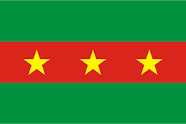Difference between revisions of "Language/Ewe/Grammar/Plurals"
m (Quick edit) |
m (Quick edit) |
||
| Line 86: | Line 86: | ||
<hr>➡ If you have any questions, please ask them in the comments section below.<br>➡ Feel free to edit this wiki page if you think it can be improved. 😎 | <hr>➡ If you have any questions, please ask them in the comments section below.<br>➡ Feel free to edit this wiki page if you think it can be improved. 😎 | ||
<span class='maj'></span> | |||
==Sources== | |||
* [https://www.grammar-monster.com/plurals/plural_of_ewe.htm The Plural of Ewe] | |||
* [https://www.merriam-webster.com/dictionary/ewe Ewe Definition & Meaning - Merriam-Webster] | |||
==Related Lessons== | ==Related Lessons== | ||
Revision as of 15:00, 12 March 2023
Hi Ewe learners! 😊
In this lesson, we will explore plurals in Ewe grammar. Making words plural is an essential part of any language, and Ewe is no exception.
If you're interested in improving your Ewe proficiency, the Polyglot Club website is a fantastic resource. It's also worth finding native speakers and asking them any questions you may have. Don't be afraid to practice your new language skills and make mistakes along the way.
Plural Nouns
In Ewe, there are two main ways to make nouns plural:
1. Add the suffix "-wo" to the end of the word.
2. Change the word's internal structure.
Let's take a look at how these two methods work in practice:
| Ewe | Pronunciation | English |
|---|---|---|
| akple | /a.k͡ple/ | "meal" |
| akplowo | /a.k͡plo.wɔ/ | "meals" |
| tsofli | /t͡ʃɔ.ɸli/ | "chicken" |
| dziwo | /d͡zi.wɔ/ | "chickens" |
| agbe | /a.ɡbé/ | "sheep" |
| agbea | /a.ɡbé.a/ | "sheep" |
As you can see, adding the "-wo" suffix is one way to make a noun plural. On the other hand, changing a word's internal structure entails adding other suffixes or altering specific vowels and consonants.
Plural Verbs
To make a verb plural in Ewe, we need to add the suffix "-dzidzɔ" to its root.
For instance:
| Ewe | Pronunciation | English |
|---|---|---|
| me | /mé/ | "I go" |
| midzidzɔ | /mi.d͡zi.d͡zɔ/ | "We go" |
This applies to any verbs in Ewe, including modals such as "can" or "must" and auxiliary verbs such as "have" or "be."
Plural Adjectives
In Ewe, adjectives can be changed into plural forms by simply adding the "-wo" suffix. For example:
| Ewe | Pronunciation | English |
|---|---|---|
| fɛ | /fɛ́/ | "hot" |
| fɛwo | /fɛ́.wɔ/ | "hot (plural)" |
Note that Ewe adjectives typically precede the noun they modify.
Dialogue
Let's put these plurals into context with a dialogue:
- Person 1: Mawuli ɖa me. ("Mawuli saw me.")
- Person 2: Mawuli dzidzɔ mi gbodziɛ ɖa me. ("Mawuli and I saw you.")
In the second sentence, note how the verb "to see" has the suffix "-dzidzɔ" appended to it to indicate that the subject is plural.
Interesting Facts
Did you know that the Ewe people, also known as the "Eʋeawó" or simply the "Ewe," are a major ethnic group in Ghana and Togo? There are upwards of six million speakers of the Ewe language. It is also spoken across borders by the Fon in Benin and Nigeria, as well as by smaller diaspora communities in North America, Europe, and West Africa.
Conclusion
In conclusion, making words plural in Ewe involves adding suffixes or altering a word's structure. To improve your Ewe grammar, you can use the Polyglot Club website. Find native speakers and ask them any questions! Don't forget to practice and make mistakes along the way.
➡ If you have any questions, please ask them in the comments section below.
➡ Feel free to edit this wiki page if you think it can be improved. 😎
